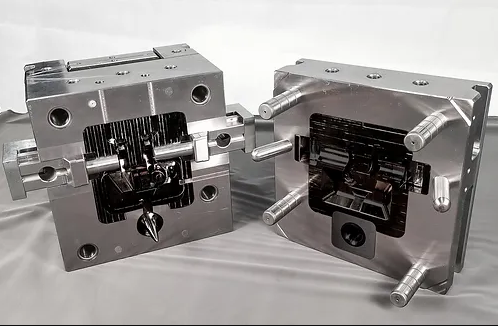The aviation industry has witnessed a remarkable evolution over the years, with advancements in technology playing a pivotal role in its growth. One area that has particularly seen groundbreaking innovations is aerospace casting. Aerospace casting involves the manufacturing of complex and precise components used in aircraft engines, structures, and systems. This article explores the innovations in precision engineering for the aviation industry through aerospace casting.
Advanced Materials:
To meet the demanding requirements of the aviation industry, aerospace casting has seen a shift towards the use of advanced materials. Traditional casting methods have primarily focused on aluminum alloys. However, with the need for lighter yet stronger components, there has been a growing use of titanium, superalloys, and composites in aerospace casting. These materials offer superior strength-to-weight ratios, corrosion resistance, and high-temperature capabilities, enhancing the overall performance and safety of aircraft.
Additive Manufacturing:
Additive manufacturing, commonly known as 3D printing, has revolutionized aerospace casting. This innovative technique allows the production of complex geometric shapes that were previously impossible or economically unviable using traditional casting methods. By layering materials one on top of another, additive manufacturing enables precision engineering of intricate components. This not only reduces material waste but also enhances design flexibility, reduces lead times, and enables rapid prototyping.
Simulation and Modeling:
Simulation and modeling have become integral parts of aerospace casting, aiding in the optimization of designs and manufacturing processes. Advanced computer simulations can accurately predict the behavior of materials during the casting process, allowing engineers to identify potential defects or imperfections before actual production. This helps in reducing costs, minimizing material wastage, and improving the overall quality of aerospace castings.
Investment Casting:
Investment casting, also known as lost-wax casting, is a widely used technique in aerospace casting. This process involves creating a wax pattern, coating it with a ceramic shell, and then melting the wax to leave a cavity. Molten metal is then poured into the cavity, resulting in a precise and intricate component. Investment casting offers high dimensional accuracy, excellent surface finish, and the ability to cast complex shapes. With advancements in materials and technology, investment casting has become an indispensable method in aerospace manufacturing.
Rapid Solidification:
Rapid solidification is another innovative technique that has gained momentum in aerospace casting. By cooling molten metal at an extremely high rate, the microstructure of the material can be controlled, resulting in improved mechanical properties such as strength and toughness. This process is particularly beneficial for casting superalloys, which are extensively used in high-temperature applications such as turbine blades. Rapid solidification ensures uniformity and consistency in the material structure, enhancing the reliability and performance of aerospace components.
Conclusion:
Aerospace casting has witnessed significant innovations in precision engineering, fueling the advancements in the aviation industry. The use of advanced materials, additive manufacturing, simulation and modeling, investment casting, and rapid solidification have revolutionized the way aerospace components are manufactured. These innovations have not only enhanced the performance and safety of aircraft but have also reduced costs, improved design flexibility, and minimized lead times. As the aviation industry continues to evolve, it is imperative to embrace these innovations in aerospace casting to meet the growing demands of a highly competitive and technologically-driven sector.
-

- Magnesium alloy die-casting rigid fork for bike
-

- Electric Bicycle Magnesium Alloy 12 inch Integrated Wheel 36v10ah Electric Moped
-

- OEM die casting components for automotive Seat frame
-

- CNC machining auto dashboard bracket
-

- Magnesium alloy thixomolding die-casting UAV parts C
-

- Magnesium alloy foundry parts bicycle wheel with CNC machining & surface finishing

 0086-750-5616188
0086-750-5616188 +86 13392089688
+86 13392089688 sales@zhongmei-tech.com
sales@zhongmei-tech.com









